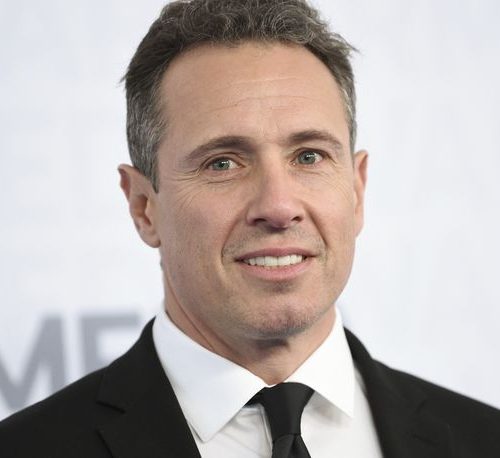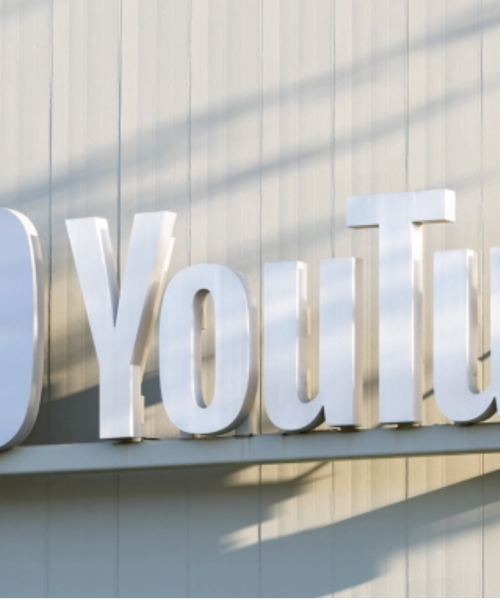BY GEORG SZALAI | HollywoodReporter.Com
Troy Warren for CNT #Business
As fallout from a Dave Chappelle special makes headlines, observers will also look for updates on new business initiatives, such as a push into video games and consumer products.
After struggling earlier this year, Netflix’s stock has gained as of late and even hit an all-time high earlier in October as investor sentiment turned more positive on the launch of global success Squid Game and the addition of library TV staple Seinfeld.
But, since the debut of Dave Chappelle: The Closer on Oct. 5, the streaming giant has been at the center of a growing controversy over multiple remarks made by Chappelle in the comedy special that mocked gender identities. LGBTQ advocacy nonprofit GLAAD described Chappelle’s brand as “synonymous with ridiculing trans people and other marginalized communities.” Additionally, co-chief Ted Sarandos’ defense of the special, in one memo saying that “content on screen doesn’t directly translate to real-world harm” drew additional criticism. Hannah Gadsby, who worked with Netflix on 2018 special Nanette and follow-up, Douglas, described the streaming company as an “amoral algorithm cult” in the wake of the Chappelle controversy.
Now, Wall Street is looking for the global streamer’s third-quarter subscriber and financial update and its fourth-quarter forecast on Oct. 19 to see where its subscriber base — which had reached 209 million users at the end of June — and the stock will go.
Beyond the typical investor focus on user trends, the pipeline of original content will be a key focus in the commentary from co-CEOs Reed Hastings and Sarandos after South Korean hit Squid Game launched with 111 million members at least sampling it within the first 25 days, leading to suggestions of a potential second season.
“Investors remain acutely focused on the Netflix content pipeline and what the robust slate will mean for fourth-quarter member growth guidance, as well as the company’s long-term view of normalized member growth,” explained Guggenheim analyst Michael Morris in a report on Oct. 1.
Plus, Hollywood and Wall Street will once again listen out for possible management signals on emerging business initiatives, such as recently outlined pushes into video games and merchandise, which are designed to develop new or secure existing revenue streams for the company.
On the gaming front, Netflix started a mobile gaming push with a test that launched in Poland in August with two Stranger Things–themed games on Android and recently acquired independent game developer Night School Studio, whose titles include Oxenfreeand Afterparty.
“Netflix’s acquisition of its first gaming studio indicates the company’s commitment to scaling the gaming platform, and we believe Netflix’s entry into gaming will serve mainly to increase retention and grow engagement with owned and exclusive content,” J.P. Morgan analyst Doug Anmuth wrote in an Oct. 7 report. “While still early, we believe Netflix’s entry strategy into gaming will comprise of Netflix owning, licensing and acquiring intellectual property over time. Importantly, the near-term investments in gaming will be financially immaterial, but we expect spending to ramp over time.”
On the merchandise front, which is taking a consumer products page from the Walt Disney playbook, Netflix opened an online store in June that sells items based on franchises like Stranger Things, The Witcher and Bridgerton. And in its biggest push into the space, the company unveiled, on Oct. 11, a deal with retail giant Walmart to sell products tied to its hits, many exclusively, including Squid Game T-shirts and Cocomelon and Nailed It! wares.
Experts also expect management to highlight its recent deal, its largest acquisition ever, for the Roald Dahl catalog — including books like Charlie and the Chocolate Factory, Matilda, The BFG, Fantastic Mr. Fox — with plans to develop a “unique universe across animated and live-action films and TV, publishing, games, immersive experiences, live theater, consumer products and more.”
Anmuth, in his earnings preview entitled “Squid Game + Autumn of George,” wrote: “Netflix user trends improved in late third quarter and our analysis of global downloads suggests third-quarter net adds of around 3.6 million,” compared with the company’s 3.5 million forecast. “Netflix data picked up in September compared to our tracking of about 2.7 million net adds through August with help from strong September content, includingMoney Heist season 5 volume 1, Kate, Lucifer season 6, Sex Education season 3 and Squid Game.”
Suggesting that current investor expectations are for 3.5 million subscriber additions in the third quarter, followed by 8.5 million in the fourth, the analyst argued: “If there is upside, it could stem from Korean original Squid Game, which … was likely a key factor in Netflix’s late September download spike, including Asia-Pacific September growth of 22 percent year-over-year. Importantly, Squid Game can help further open up the Asia-Pacific region, which has low penetration and it is another example of local content traveling well globally.”
All in all, Anmuth reiterated his “overweight” rating and $705 stock price target on Netflix, concluding: “Even after the recent stock move we remain positive on Netflix shares based on further strengthening of the content slate in the fourth quarter, greater distance from pandemic pull-forward, stronger seasonality and the potential for greater traction in Asia-Pacific.”
Cowen analyst John Blackledge, meanwhile, forecasts 76,000 subscriber additions in the third quarter in the U.S. and Canada, down from 177,000 in the same period of 2020, with total global adds of 3.63 million, up from 2.2 million. In an Oct. 5 report, he also cited such non-English language hits as Money Heist, Too Hot to Handle: Brazil, Crime Stories: India Detectives and “viral hit Squid Game.”
“While Netflix had spent the last few quarters working through the pull-forward of sub adds from the pandemic, the second-half 2021 original content volume is accelerating and likely to drive higher engagement and potentially lower churn,” Blackledge explained.
Guggenheim’s Morris also recently raised his Netflix price target from $600 to $685 in a report entitled “Squid Game Another Scary Example of Netflix’s Powerful Global Content Machine.” In it, he forecast 3.5 million subscriber additions in the third and 9.0 million in the fourth quarter, which would bring 2022’s subscriber gain to 25 million, compared with a consensus estimate of 23.7 million and 2020’s COVID pandemic-driven record of more than 36 million.
And Morris highlighted: “We believe that the global popularity of South Korean-sourced Squid Game is indicative of the unique value proposition that Netflix brings to content creators and consumers around the world.”
Even Wedbush analyst Michael Pachter, who has been bearish on Netflix and rates its stock at “underperform” with a price target of just $342, highlighted the benefits of finding hit content abroad.
“We think Netflix has found a sound and profitable strategy with its content internationalization efforts, with Squid Game a perfect example. This and its Seinfeldlaunch in the fourth quarter should provide a solid cushion for fourth-quarter guidance and results,” Pachter wrote in an Oct. 15 report. “We view Netflix’s foray into games as an acknowledgement that the video content pipeline is flowing more slowly, with content costs continually on the rise. … That said, if we assume that Netflix can expand its content spending at a slower rate than its revenue growth, which its internationalization efforts may allow, it is likely that the company can deliver sustainable free cash flow growth.”
Daniel Salmon of BMO Capital Markets echoed that in a report on Oct. 14. “The strong second-half content slate – highlighted by Squid Game – has reinvigorated the stock and near-term subscriber optimism,” he wrote in reiterating his “outperform” rating and $700 stock price target.
As of Oct. 14, Netflix’s stock, which had closed 2020 at $540.73, was up 17.6 percent for the year to date at $636.16, giving the company a market capitalization of $281.6 billion, after on Oct. 7 hitting an all-time high of $646.84.
In Other NEWS



































